It doesn’t matter if you just started burrowing down the SEO rabbit hole, or you’ve been practicing it for years: if you want to truly maximize your SEO efforts, then you must be willing to look at common best practices from different angles.
Arguably, the most essential SEO best practice is keyword research. We all know why keyword research is important. Even with only a surface level understanding, SEO novices can deduce that if you know what keywords to focus on, you’ll be able to drive more traffic to your site; however, it’s important to remember that you shouldn’t look for keywords without a particular goal in mind.
If you’re researching keywords just to research keywords, then you’re probably better off using that time to create content or build links.
When & Why You Should Conduct Keyword Research
Generally, SEO’s turn to keyword research when they want to
- Optimize a site that has been around for awhile
- Optimize a site that has just been launched
- Create new content
- Improve existing content
Now, you might be thinking:
Yes! I am trying to optimize a new website; or..Yes! I’m trying to optimize this really old site for my client or friend. So…what tools should I use, and how exactly should I proceed?
Since you asked so nicely, here’s our step-by-step process.
Kick Start Your Keyword Research Journey In 6 Steps
1. Define Your Target Audience
This really isn’t as cliche as you might think. If you’re the marketing manager of an auto body shop, your perception of ideal customers may be different from the owner. To kick things off, answer this question: Who are your ideal customers?
2. Pick Your “Head Terms” and Study The Competition (Read & Watch Their Content)
Let’s say you do run or manage an auto repair shop, and one of your core services is “suspension repair”. Since auto repair services are local in nature, type “suspension repair [target city / state]” into Google. Next, take some time to read the content of the sites that rank for that term. Compare it with your site’s suspension repair content, and without thinking about volume, numbers, or cost per click, ask yourself:
If I were looking for suspension repair, why might this site sway me over my own?
This was exactly how we set out to optimize some town pages for an auto repair shop. While reading through top sites that offer suspension repair, we realized that shocks and struts play a big role. That’s why, in the steering and suspension section of their town pages, we talk primarily about shocks and struts. Why? Because it’s highly relevant to “Steering and Suspension”
3. Steal Keyword Ideas From Your Competitors With Ubersuggest
Ubersuggest is amazing. Why? Because it lets you scrape your competitor’s keyword rankings for FREE. Remember those top ranking sites you studied in step 2? Well, go ahead and plug them into Ubersuggest.
You’ll find exactly what keywords they’re ranking for, how many visits they recieve vs. the total estimated volume, what pages perform the best, and what keywords those pages rank for. Oh, and you’ll find how many social shares and backlinks these pages receive too; no big deal.
4. Use Keywords Everywhere In Conjunction With Google, YouTube, and Amazon Suggest
With so many different keyword research tools vying for your attention and business, it can be easy to get overwhelmed. And guess what happened when you spend too much time worrying about what tool to use?
You stop actually doing SEO.
The truth is that all keyword research tools provide very similar information. They all scrape major search engines for suggested keywords. Sure, some volume and difficulty metrics may vary, but they all essentially provide you with a list of keywords that are searched together with whatever head term you choose.
To simplify everything, use the search engines themselves for your research. Before you start, add the Keywords Everywhere extension to your browser. If you’re an insurance business, plug some head terms (life insurance, renters insurance, homeowners insurance) into Google, and hit the spacebar. This will give you a list of related queries that people search together with that term often
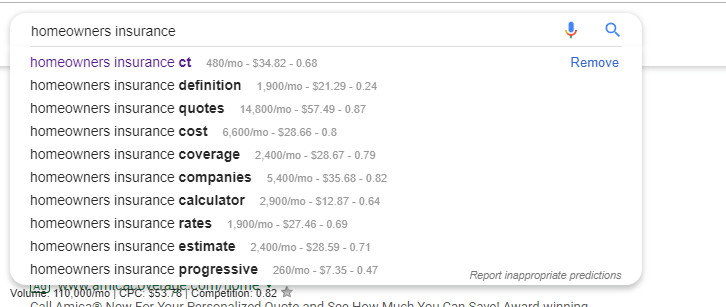
What you’ll notice is that with Keywords Everywhere, you’ll see estimated volume and cost per click numbers for each of these suggested keywords.
To uncover more important terms, head to the bottom for a list of related terms
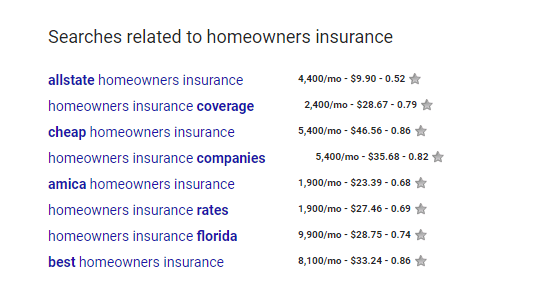
Don’t forget the sidebar
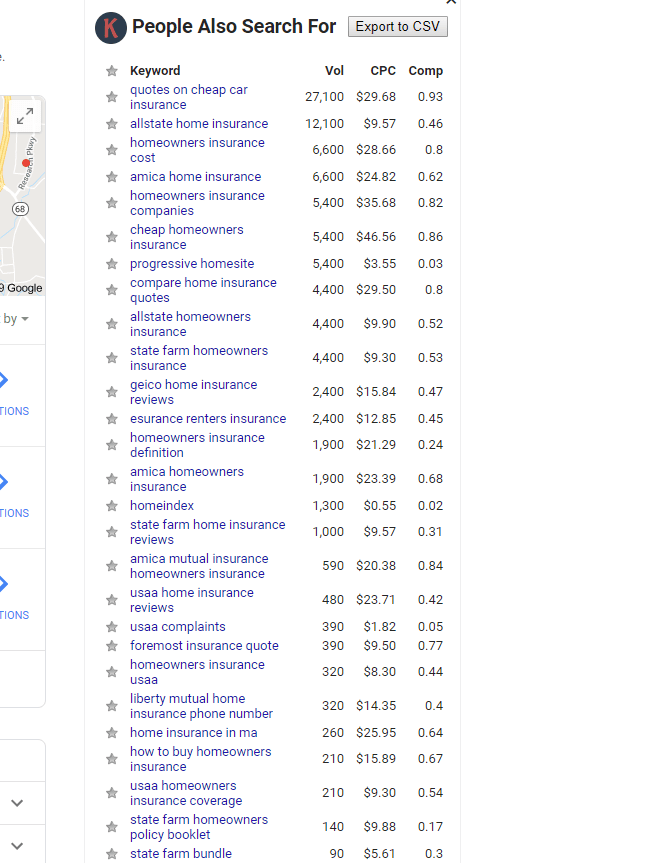
This works equally well with YouTube and Amazon too, by the way.
Ok, now you’re probably wondering:
That’s nice and all, but what do I DO with those keywords?
Well, if you’re optimizing an insurance website, this data is probably not telling you things you don’t already know; which is that people generally pair those head terms with specific brands.
What you COULD do is implement words like “estimate,” “rates, “quote,” and “coverage” into your meta data and landing pages. Moreover,if you don’t have a calculator for free estimates, then it’s probably a good idea to add one.
Of course, most insurance sites have already incorporated this verbiage into their pages. The truth is that you will often have to dive below the obvious surface words, especially if you’re in a competitive industry.
That’s where non-commercial, informative content comes in.
In the case of homeowners insurance, don’t focus exclusively on insurance for homeowners. Instead, consider the things that homeowners care about. Homeowners are people, just like you. And most of the time, these people are surfing the net for answers to different kinds of questions. They may, for example, be facing a problem with a squirrel in their attic. Now you don’t want to stretch the connection too far, but the idea is to reach your target audience from different areas in their life.
5. Use Reddit, Quora, and Search Operators to Get to Know Your Audience Better
People really go into detail on Reddit and Quora. When we first took on a self-storage client, we needed to understand what people prioritized when searching for storage units. To figure this out, we used Google Suggest, sure, but we also used Reddit. What we learned from this research was that people really valued security and climate control. Unfortunately, our client doesn’t have climate controlled units, but it was still good to know.
To scrape these sites quickly, use search operators, like:
- Inurl:reddit “self storage”
- Inurl:reddit “storage units” AND “Connecticut”
You can also use the Reddit Keyword Research Tool.
6. Use Google Search Console to Improve Your Existing Content
The beauty of Google Search Console is that it tells you what you’re already ranking for. To leverage the power of this amazing, FREE SEO tool, focus on individual pages. For example, while working with a custom load cell manufacturer, we used Google Search Console to uncover closely related terms that our target page already ranked for. After that, it was as simple as adding fresh keyword-focused content to the page.
Want to know how to do it?
- First, pick a page that you want to focus on. For the sake of this tutorial, we’re going to use our somewhat lackluster custom reports page . We chose this page because it has lots of impressions, yet it has a zero percent click-through rate, and seems to be stuck at position 65 in the SERPS..
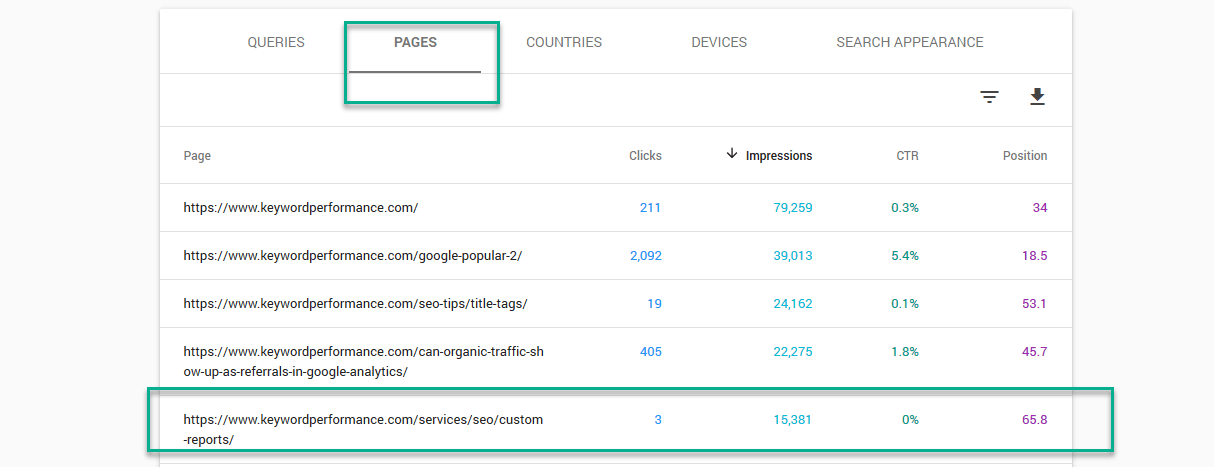
- To focus exclusively on this page, you can click on it from the “pages” tab, or plug it in via “add new”
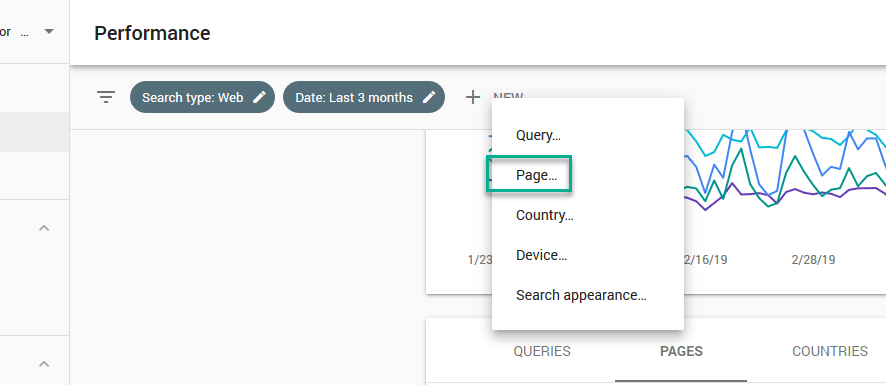
- Once you’ve highlighted the page, click “queries”
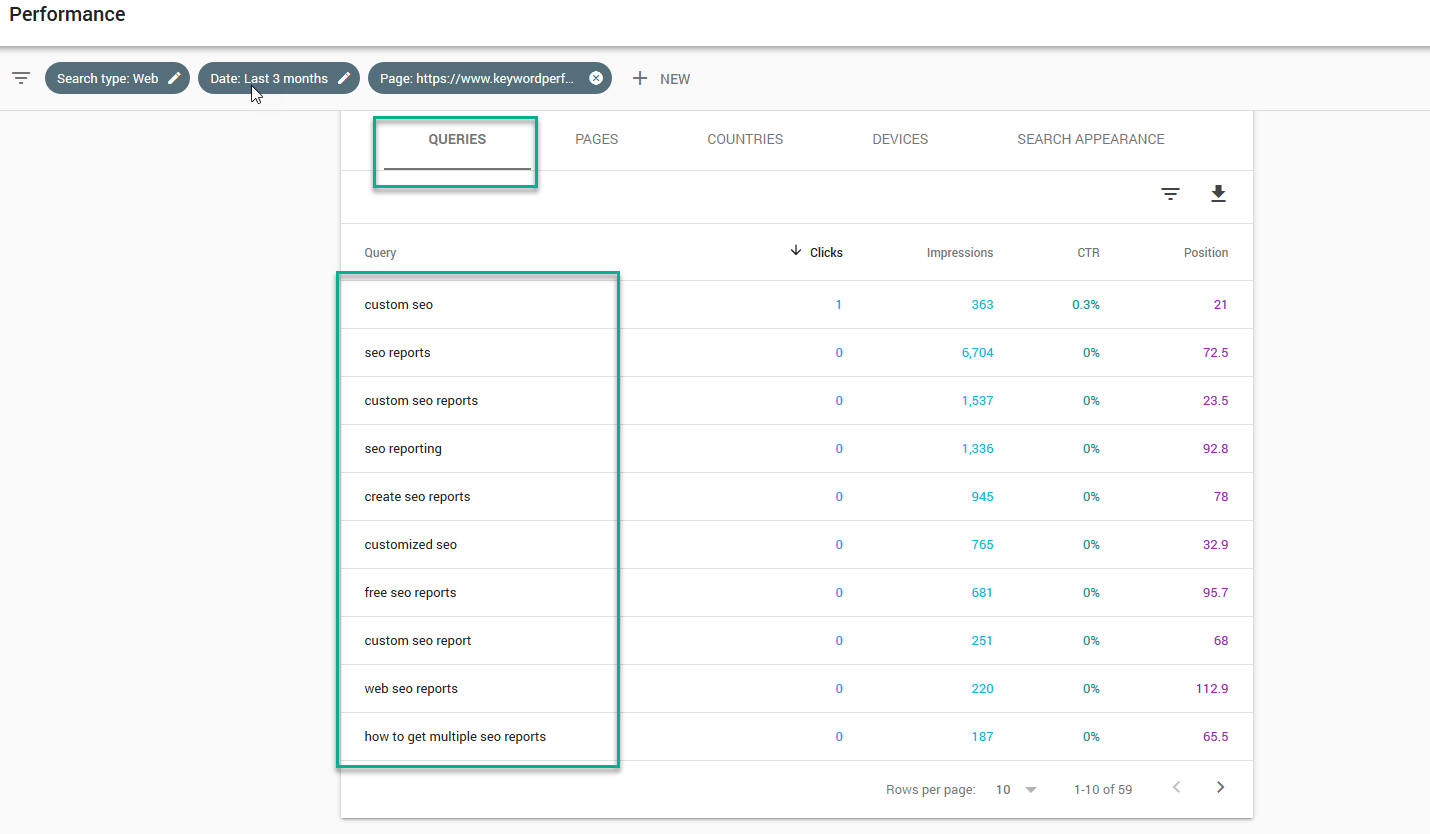
- Now we’ll filter by “impressions”
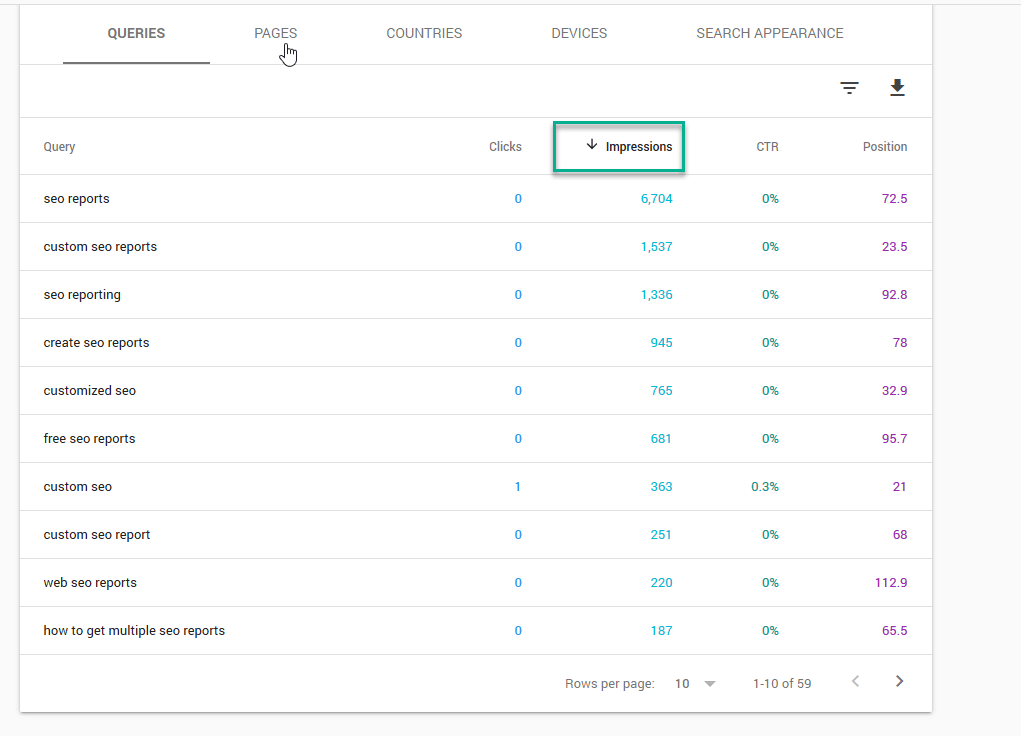
The first phrase that stands out is “create seo reports.” How can we use this to our advantage? How about we create a new section for the page, called “How We Create Custom SEO Reports.” We could then describe how we use Google Data Studio to build out custom SEO reports for our clients. Get the idea?
Need Help With Keyword Research? Keyword Performance Can Help!
Whether you’re a local or national business, we can help you locate high-quality keywords to include in your website. But that’s not all! If you really want to jump start your SEO, then feel free to reach out. From keyword discovery to on-page SEO and practical link building–we’ve got the experience and drive needed to bring your SEO efforts to the next level.
 logo
logo
